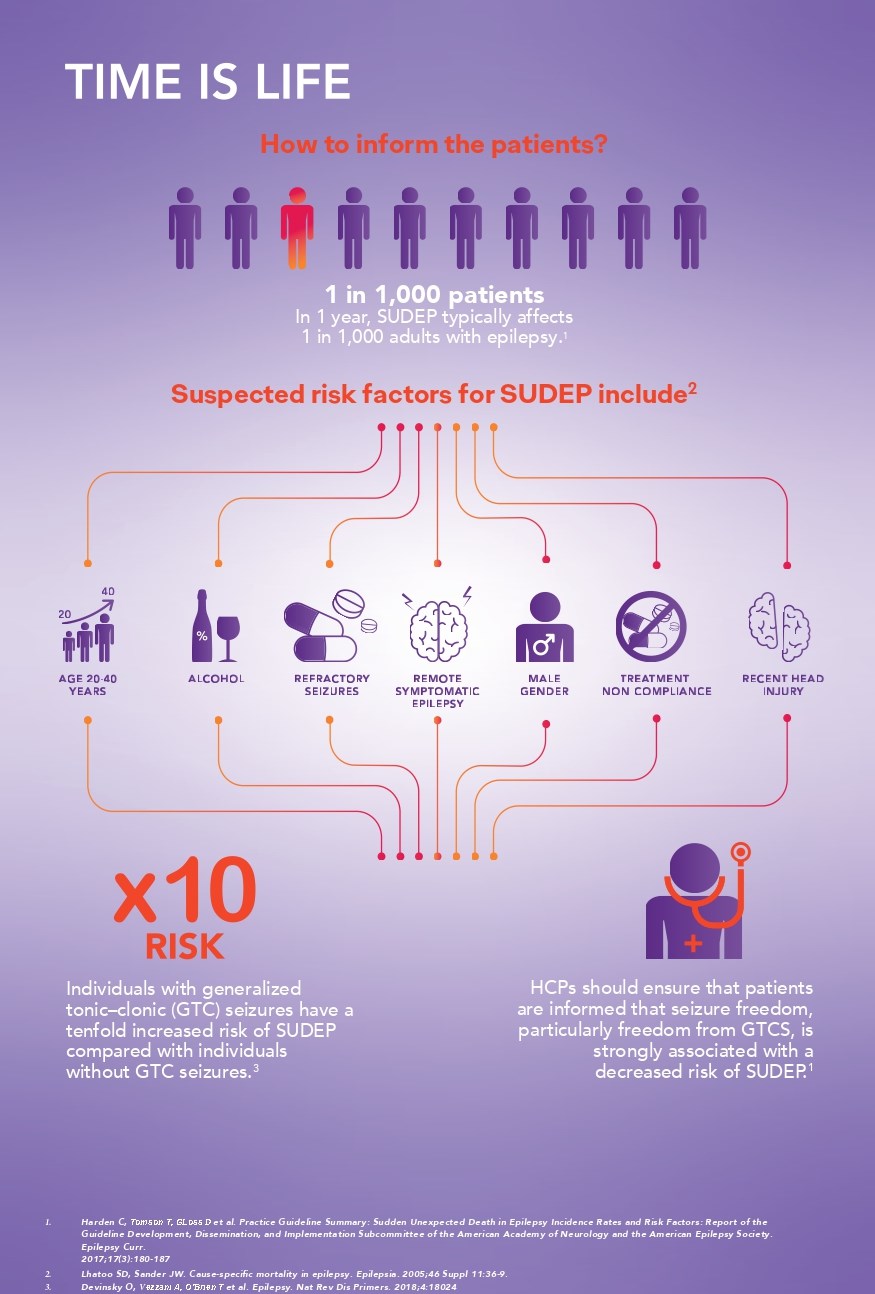THINK … TIME IS LIFE
How to discuss SUDEP with patients.

SUDEP RISK: a patient management perspective to achieving seizure freedom
“…the anxiety, that I could have a seizure at any time. I think that’s the biggest thing…”1
After being informed of an adverse event, people commonly overestimate the risk of that adverse event’s happening to them. Such overestimation unduly increases the anxiety related to an adverse event.2 The way healthcare professionals present data and interact with patients has a significant impact on risk perception. Overestimation can be lessened by presenting the risk as the probability of both having and not having the event and by using numbers in addition to words and frequencies rather than percentages to convey the risk.2
Patients are especially interested in factors that might reduce their risk even when a causal link between the factor and a reduction in risk has not been established. Knowledge of these risk factors might suggest behaviors that could modify the risk factors (e.g., improved therapy adherence), increase the person’s sense of control, and reduce the anxiety that comes from awareness of the risk.2

Effectively communicating SUDEP risk is an important aspect of epilepsy management.2,3
While the risk of SUDEP is relatively low2, it's important to remember that it remains a significant cause of epilepsy-related death in children and adults. 3This is particularly relevant in epilepsy surgery programs, where the incidence can be as high as 9.3/1000.4
Understanding SUDEP: Insights from Prof. Torbjörn Tomson
- Reeder S, Foster E, Vishwanath S et al. Experience of waiting for seizure freedom and perception of machine learning technologies to support treatment decision: A qualitative study in adults with recent onset epilepsy. Epilepsy Res. 2023;190:107096
- Harden C, Tomson T, Gloss D et al. Practice guideline summary: Sudden unexpected death in epilepsy incidence rates and risk factors: Report of the Guideline Development, Dissemination, and Implementation Subcommittee of the American Academy of Neurology and the American Epilepsy Society. Neurology. 2017 Apr 25;88(17):1674-80.
- Whitney R, Sharma S, Ramachandrannair R. Sudden unexpected death in epilepsy in children. Dev Med Child Neurol. 2023 Sep;65(9):1150-1156.
- Lhatoo SD, Sander JW. Cause-specific mortality in epilepsy. Epilepsia. 2005;46 Suppl 11:36-9.
MAT-NO-0006-P Mar 2025
 Harmonia Mentis Norway
Harmonia Mentis Norway
